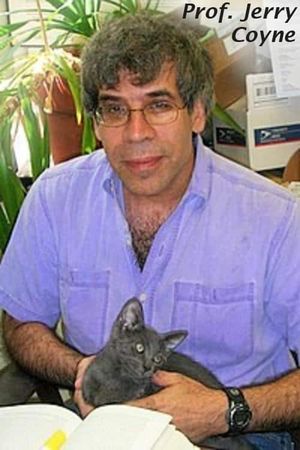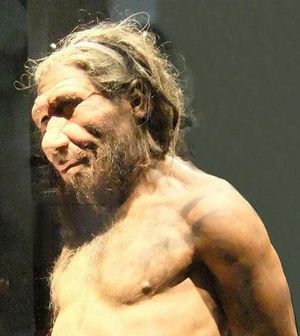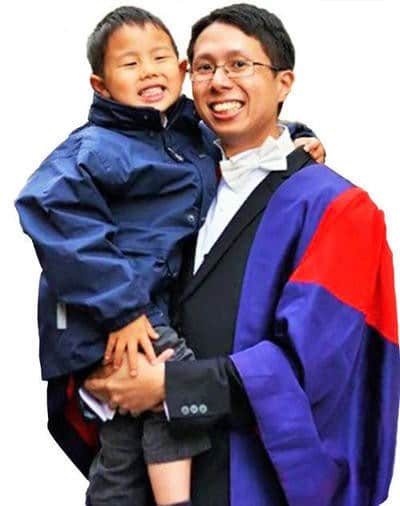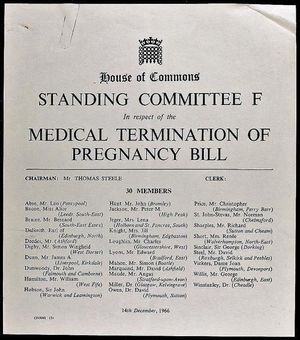Professor Jerry Coyne is an evolutionary biologist at the University of Chicago, a prominent critic of creationists and author of Faith vs. fact: why science and religion are incompatible.1
In his blog (which goes under the name ‘Why Evolution is True’), he recently argued for the euthanising of severely disabled new-born babies.2 Coyne asks, ‘If you are allowed to abort a foetus that has a severe genetic defect, microcephaly, spina bifida, or so on, then why aren’t you able to euthanise that same foetus just after it’s born?’
I have to admit that I find his logic perfectly sound; and this demonstrates so clearly why abortion is wrong. Once we accept the destruction of the baby in the womb, then the sanctity of all human life is brought into question.
Evolutionary view
One might ask how the taking of any human life might be justified. In the same article, Coyne provides the answer: ‘After all, we euthanise our dogs and cats when to prolong their lives would be torture, so why not extend that to humans?’
Consistent with his evolutionary view, he regards humans as no different to animals. (The young Charles Darwin would have agreed. He wrote, ‘People often talk of the wonderful event of intellectual man appearing — the appearance of insects with other senses is more wonderful’).3
Again, I cannot disagree with Coyne’s logic; and this demonstrates so clearly the dangers of evolutionary beliefs. Once we accept that we are no more than animals, then taking human life would, indeed, seem perfectly reasonable.
In contrast, the Bible makes clear that we are much more than animals. Having been made in God’s image, we have a spiritual as well as a physical nature (Genesis 2:7). Hence Coyne is, again, on shaky ground when he seeks to argue that, since newborns do not have the mental capacity to understand death, they cannot fear it. Babies are spiritually aware even before birth (Luke 1:41). How then can anyone know that, when death approaches, they are not afraid?
Where will it end?
Coyne rejects the concern that euthanising babies will put us on the ‘slippery slope’ and will lead to Nazi-like eugenics. He wrote, ‘This hasn’t come to pass in places where assisted suicide or euthanasia of adults is legal’.
As pointed out by neurosurgeon Dr Michael Egnor however, ‘Killing handicapped children because their lives are unworthy of life won’t lead to Nazi medical practice. It is Nazi medical practice’4 (emphases added).
History has shown that advocates of euthanasia are never satisfied. Belgium legalised assisted suicide in 2002, ‘under strict conditions’ and only for those in ‘constant and unbearable physical or psychological pain’.5
Yet people there have also been euthanised due to having autism, anorexia, borderline personality disorder, chronic-fatigue syndrome, partial paralysis, blindness coupled with deafness and manic depression.6
One in fifty Belgians now dies by euthanasia, and this ‘right’ has even been extended to children. In the Netherlands, ministers of health and justice have proposed that assisted suicide be afforded to those who simply ‘feel their life is completed’ and now wish to die.7
Conclusion
Coyne argues, ‘When religion vanishes … so will much of the opposition to both adult and newborn euthanasia’. Yet again, I have to agree with him; and it is surely significant that this call for killing babies should appear on a website devoted to ‘proving’ evolution.
Having rejected the God who made him, Coyne has lost all sense of reality. He now doesn’t and can’t understand human nature, and can no longer think rightly about these issues.
Rather than offering ‘dignity in dying’ (a favourite slogan of the pro-euthanasia lobby), legalising killing devalues people and robs them of their status as God’s image bearers.
Only by holding to the biblical account of creation can we assert the true nature of man and prevent society sinking further and further into this kind of confusion and error. Only by viewing people as God does, can we make right laws and care for others as we should.
Footnotes:
1. Woodmorappe, J., ‘Atheist fantasies vs fact, Review of ‘Faith vs fact: why science and religion are incompatible’ by Jerry Coyne’, J. Creation 30(2):40–45, 2016.
2. Coyne, J. A., ‘Should one be allowed to euthanize severely deformed or doomed newborns?’, 13 July 2017; whyevolutionistrue.wordpress.com
- Darwin, C., Notebook B, p. 207, 1837–1838; darwin-online.org.uk
4. Egnor, M., ‘Darwinian biologist endorses killing handicapped babies who “suffer”’, 17 July 2017; evolutionnews.org
5. ‘Belgium legalises euthanasia’, BBC News, 16 May 2002; news.bbc.co.uk
6. Aviv, R., ‘The death treatment’, The New Yorker, 22 June 2015; newyorker.com
7. Philippe, J., ‘Dutch government proposes assisted suicide for those who feel “life is completed”’, Evangelical Focus, 11 November 2016; evangelicalfocus.com
Dominic Statham BSc, DIS, MIET, CEng worked for Rolls Royce on projects for the Panavia Tornado and Eurofighter Typhoon, and for GKN engineering drivelines for Jaguar and Land Rover vehicles. He has extensive experience of product development and holds a number of patents. He is a speaker and writer for Creation Ministries International. This article is used with kind permission.




















